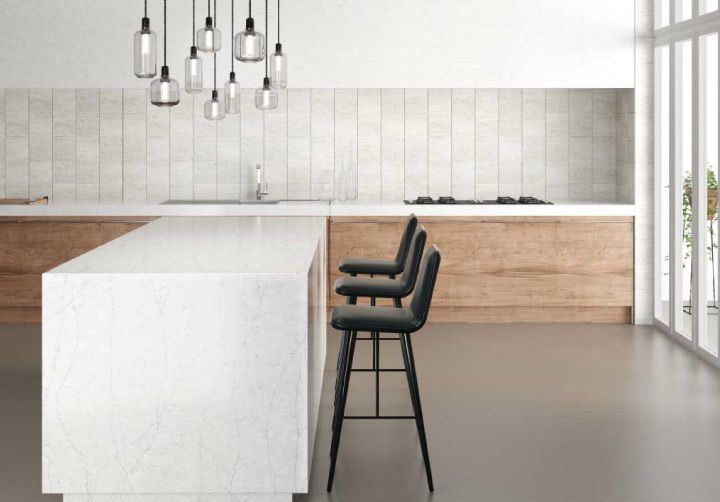Sustainability Meets Style: The Eco-Friendly Advantages of Silestone

Welcome to the world of Silestone—a countertop choice that transcends conventional elegance. Silestone, composed of a remarkable 94% natural quartz, is not just a surface; it’s a testament to sustainable living. As we embark on this exploration, envision a countertop that not only adds aesthetic allure to your space but also aligns with eco-conscious choices.
In the evolving landscape of home design, sustainability has become a guiding principle. Beyond mere aesthetics, Silestone emerges as a frontrunner in the realm of eco-friendly choices. This introduction paves the way for an enlightening journey into the core of Silestone & it’s sustainability. As we unravel its green essence, prepare to discover a countertop solution that harmonizes style with a profound commitment to our planet.
Manufacturing Practices: Minimizing Environmental Impact
Silestone's commitment to sustainable manufacturing indicates a comprehensive
and integrated strategy. This commitment likely encompasses various aspects of the production process, from sourcing raw materials to product distribution.
Silestone is composed primarily of natural quartz, one of the most abundant and sustainable minerals on Earth. The use of quartz reduces reliance on less sustainable materials, such as granite or marble, which might involve more extensive quarrying.
Silestone incorporates recycled materials into its production process, further reducing the demand for new raw resources. This commitment to using recycled content contributes to the circular economy by diverting waste from landfills and promoting the reuse of materials.
Silestone employs advanced technologies and processes that aim to reduce energy usage during production. This can include using energy-efficient machinery, optimizing manufacturing schedules, and sourcing renewable energy where possible.
Longevity and Low Environmental Impact
Silestone’s durability contributes to sustainability by ensuring a long lifespan, reducing the need for frequent replacements and associated resource consumption. Its robust nature enhances environmental friendliness through extended product longevity.
Silestone’s prolonged lifespan and lower environmental footprint, when compared to other countertop materials, underscore its eco-friendly advantages, promoting responsible consumption and minimizing the environmental impact associated with frequent replacements or disposals.
End-of-Life Considerations: Recycling and Repurposing
Silestone offers end-of-life sustainability through recycling initiatives, and exploring
methods to repurpose the material efficiently.
Silestone’s commitment to recycling mitigates landfill waste, aligning with circular economy
principles by extending the lifecycle of its products, reducing environmental impact, and fostering a more sustainable approach to material use.
Embrace Style with a Conscience: Silestone’s Eco-Friendly Excellence
In conclusion, Silestone stands out for its eco-friendly advantages, featuring sustainable manufacturing practices, durability, and end-of-life recycling options. Its composition of natural quartz and commitment to reducing environmental impact make it a stylish and responsible choice for countertops.
As you embark on countertop choices, prioritize sustainability. Silestone not only offers style but also a conscientious approach to the environment. Choose a countertop that not only enhances your space but also reflects your commitment to a greener, more sustainable future.
